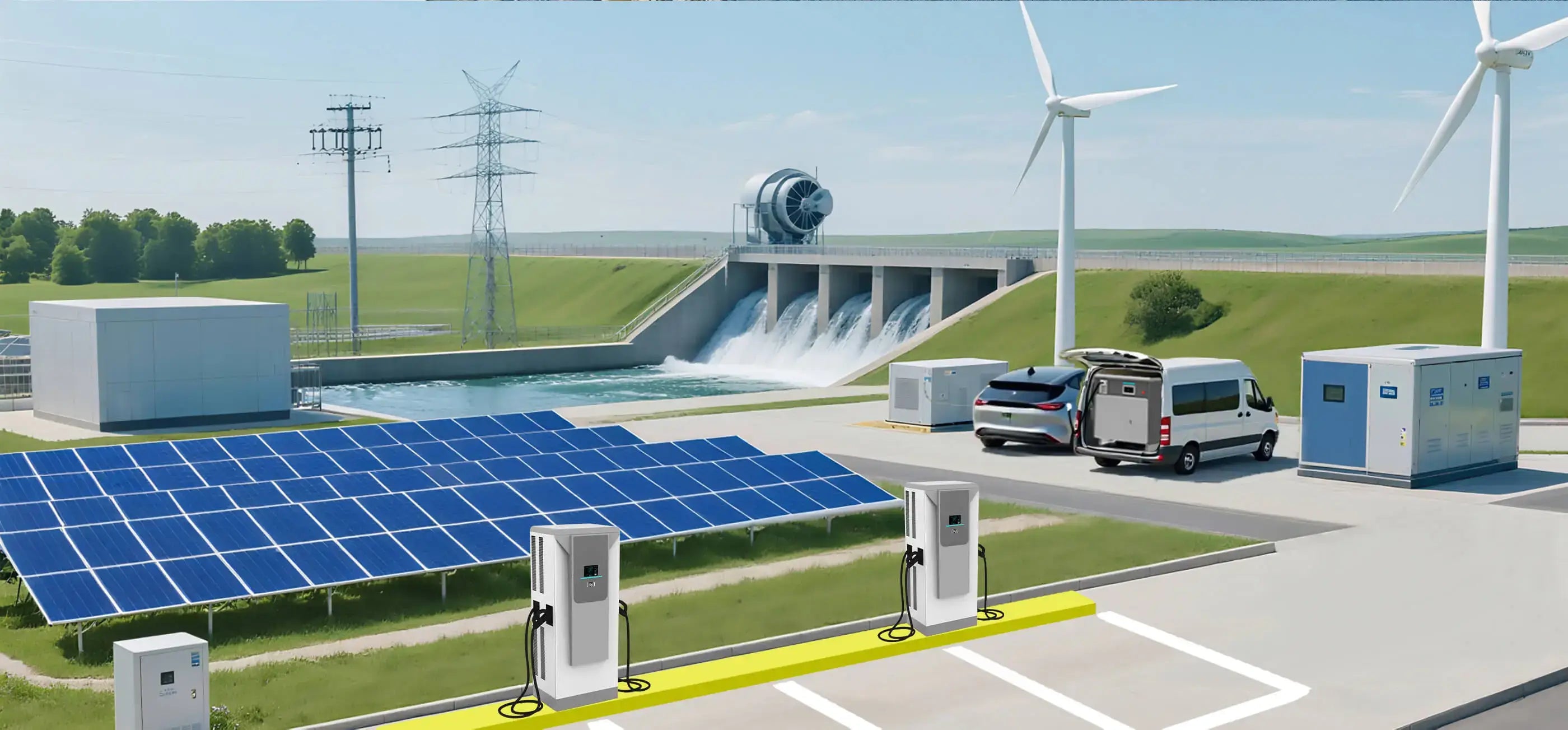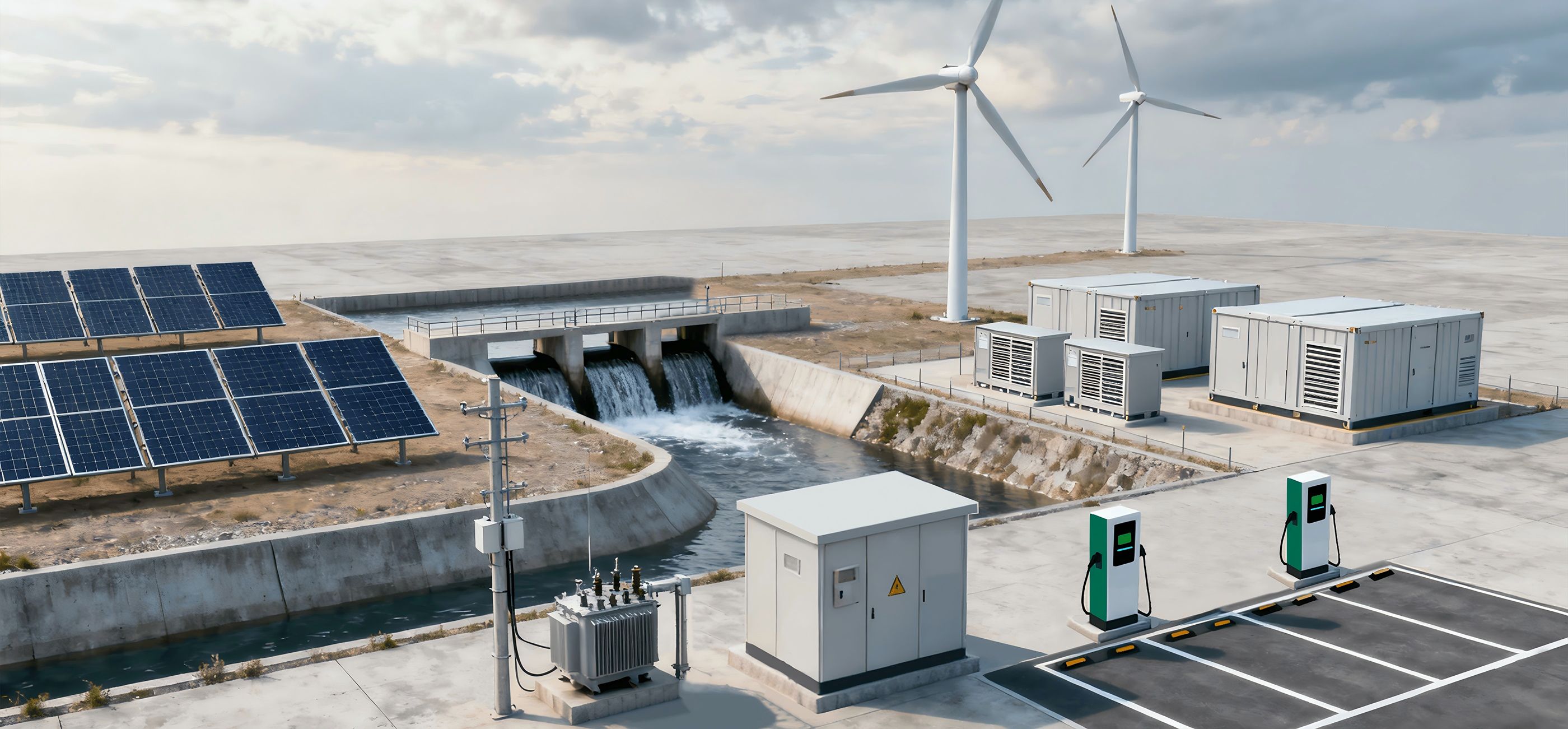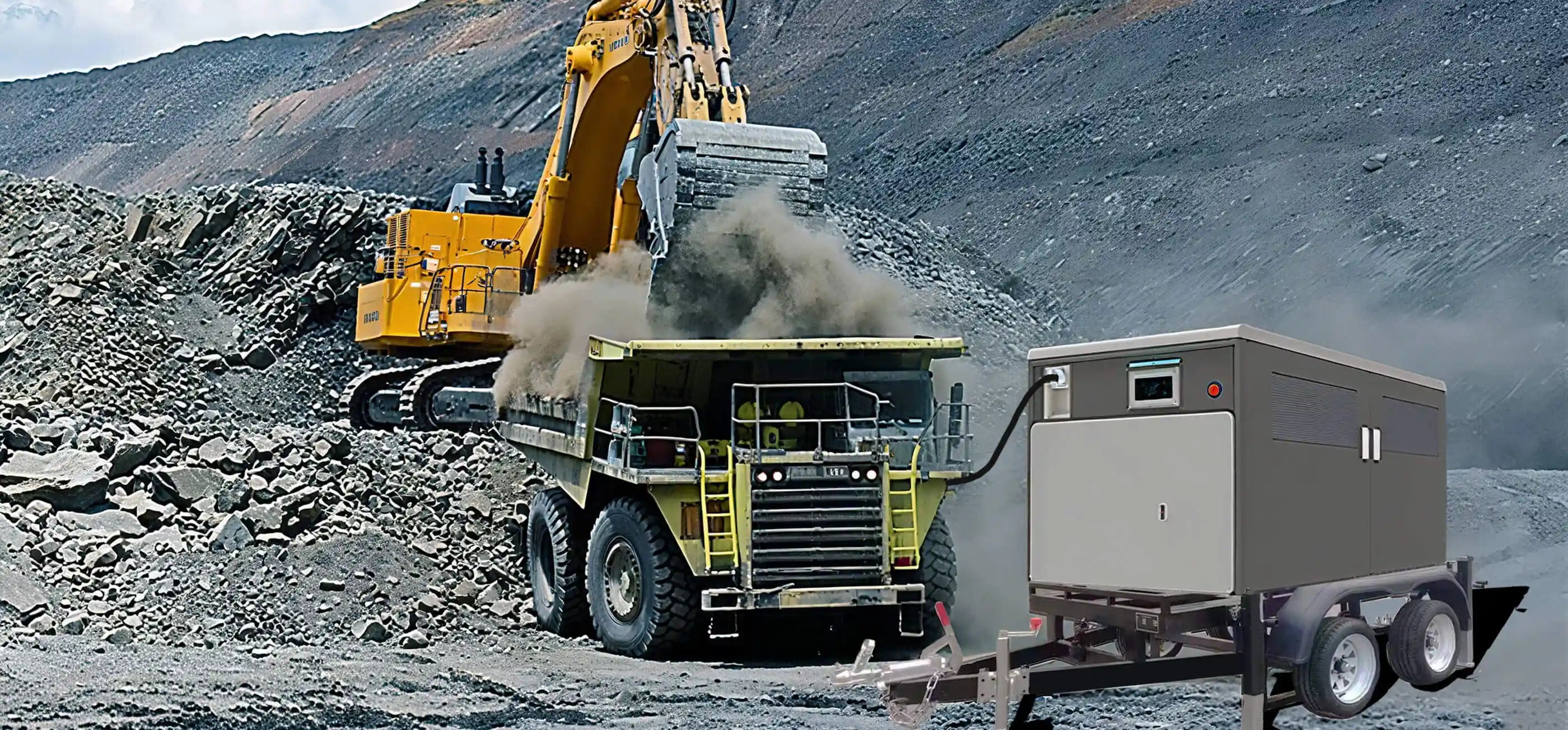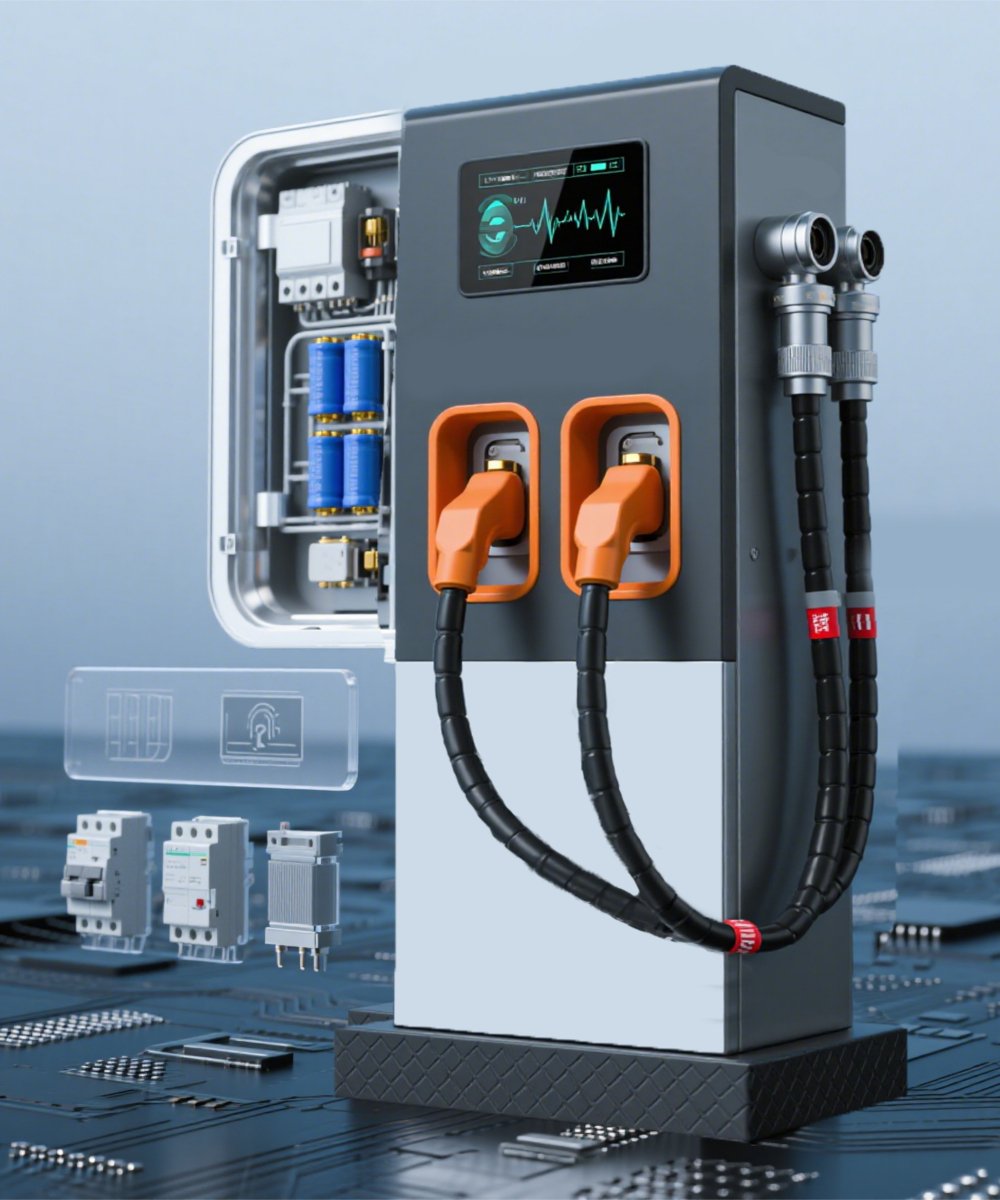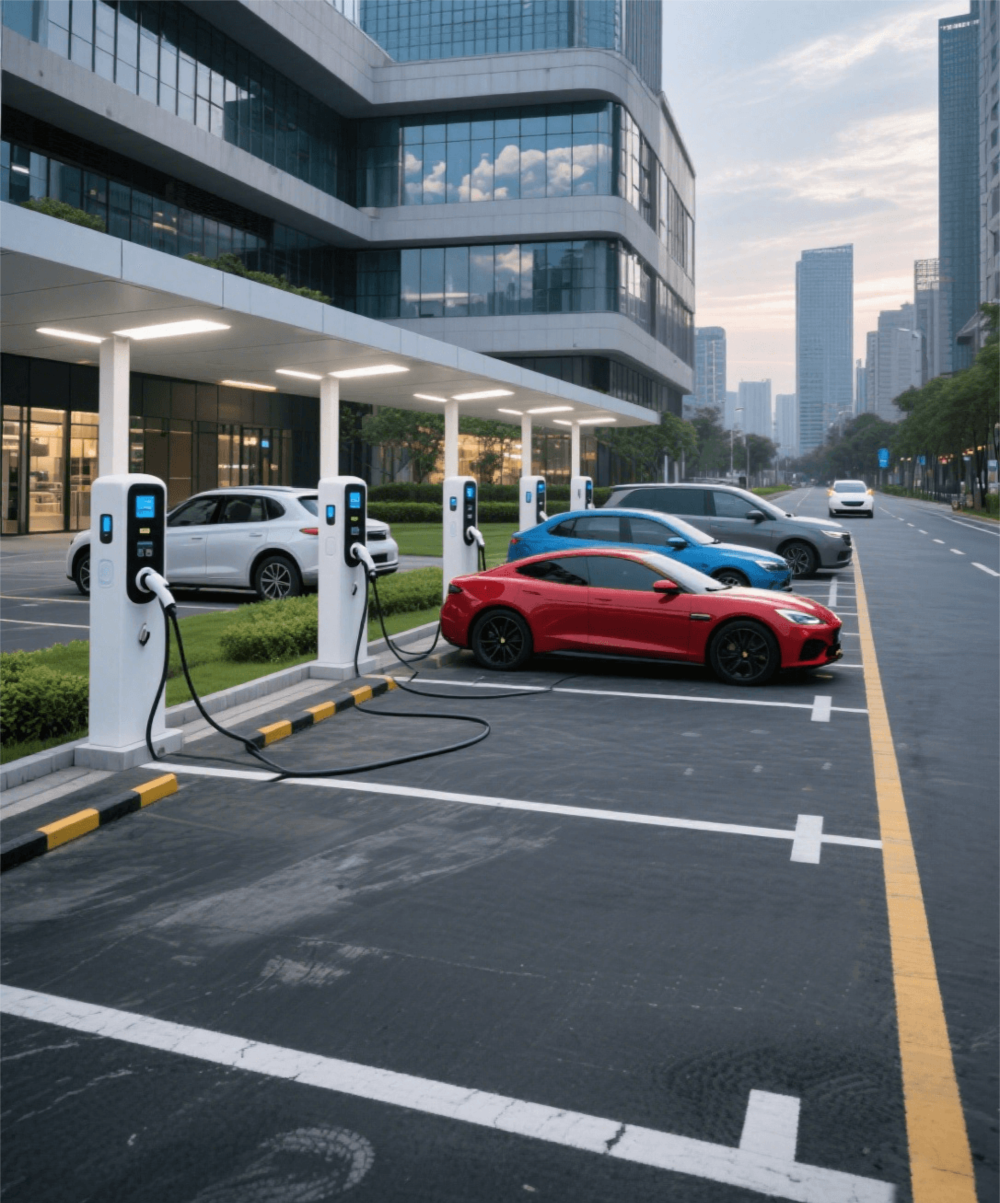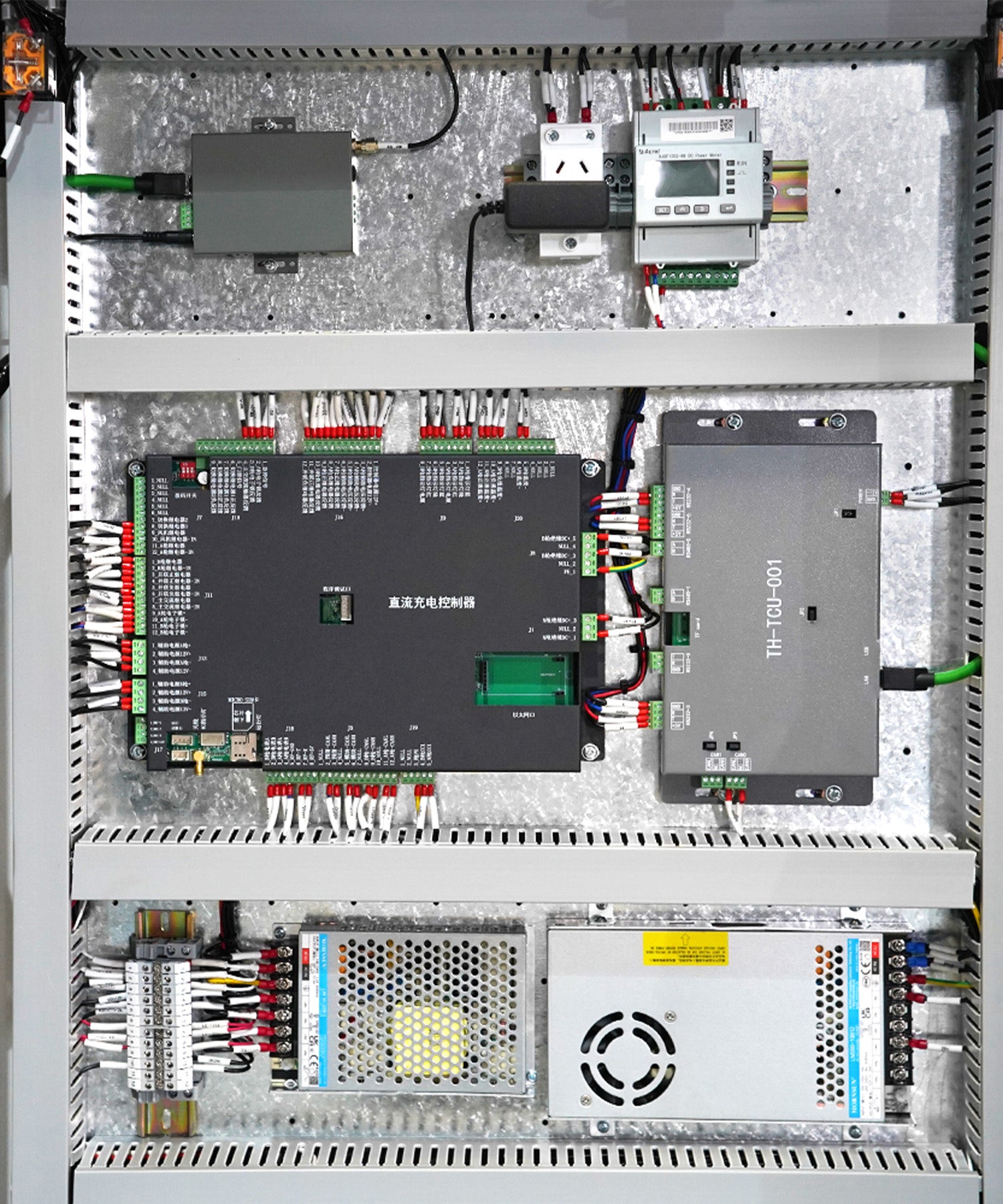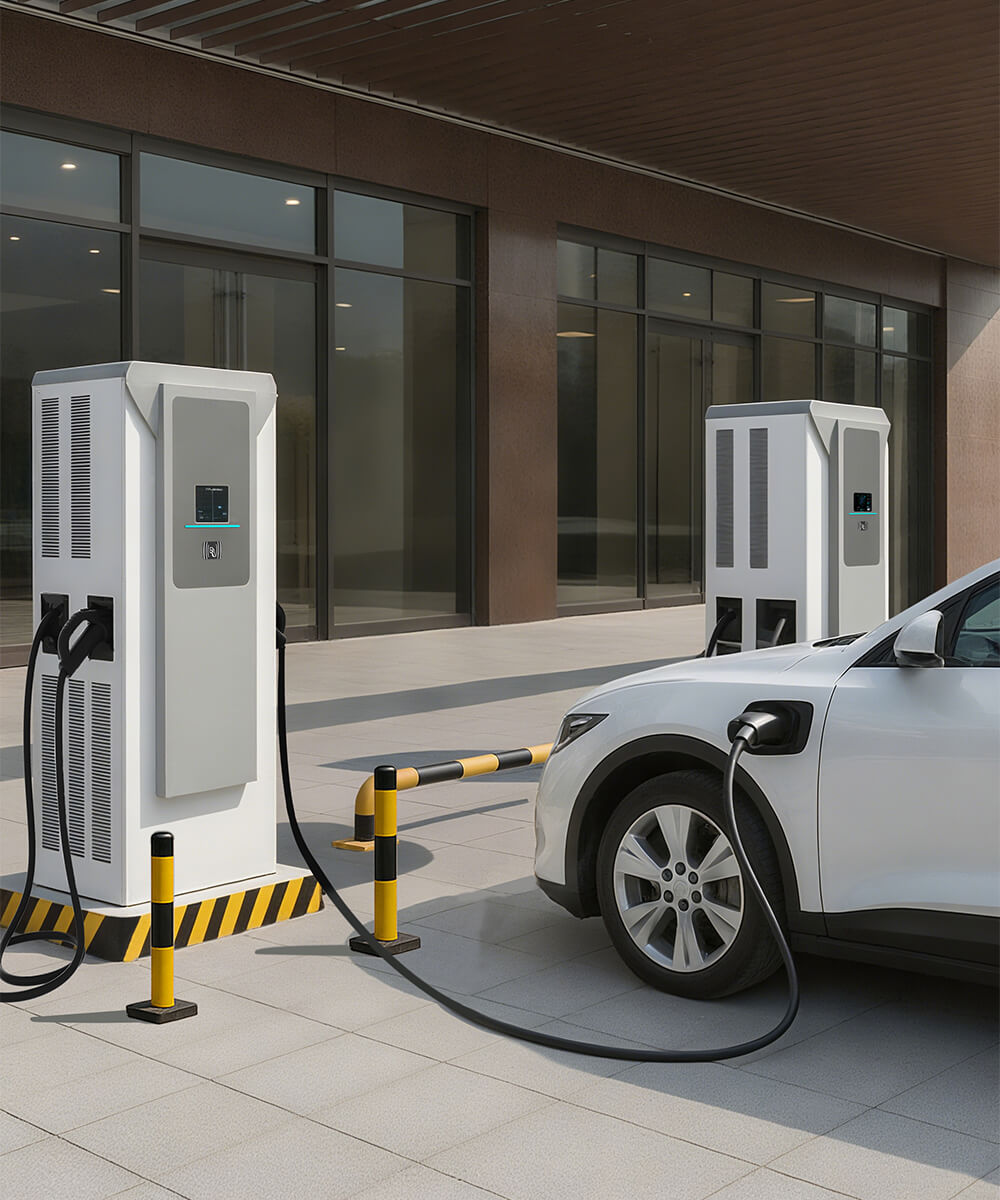
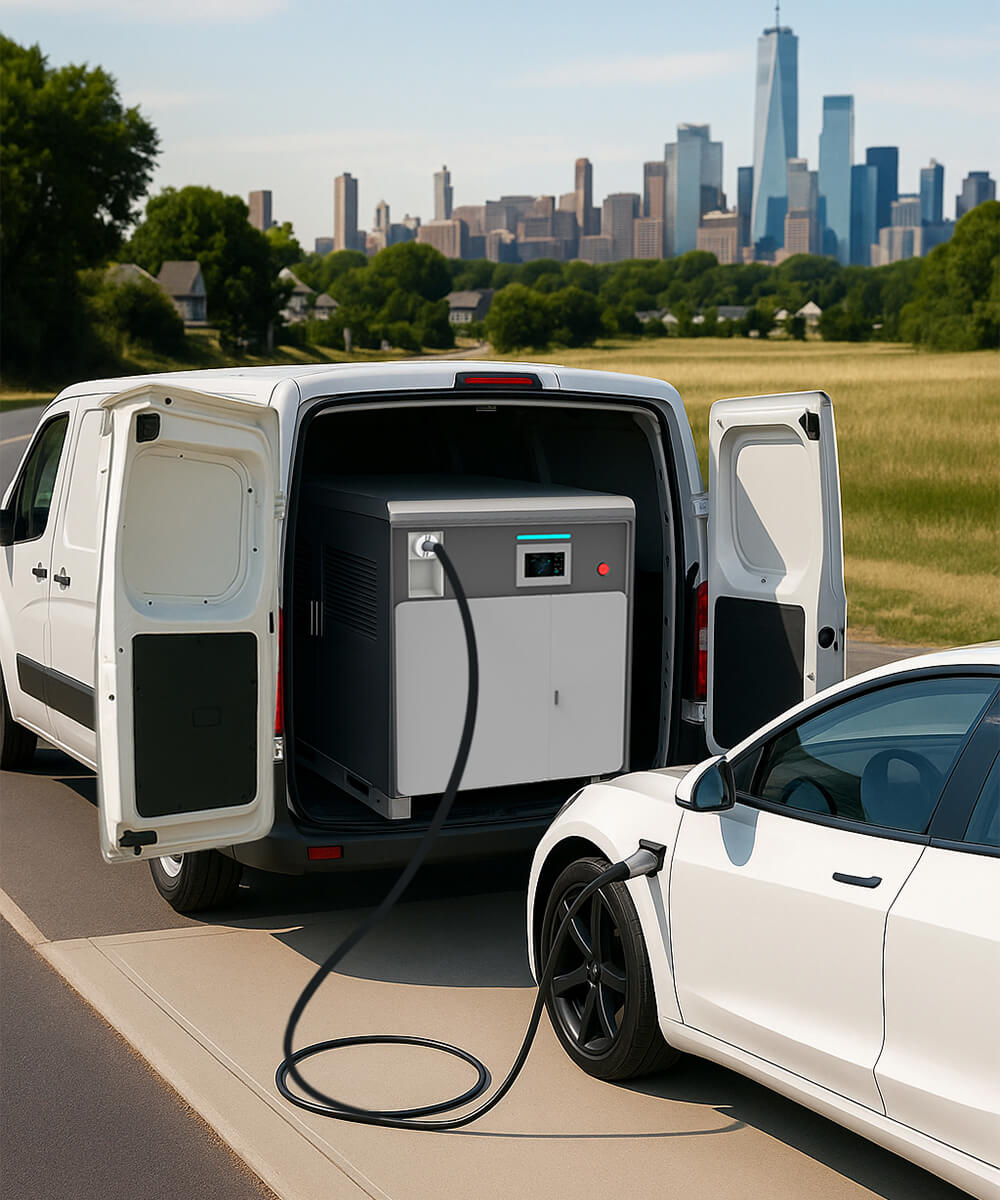
Fast charging is suitable for highways, commercial areas,and operational vehicle zones, with a 30 minute fast power replenishment to improve efficiency; Slow charging is suitable for daily scenarios such as residential areas and office buildings, with low cost and flexible installation. Recommend the combination deployment of "fast charging+slow charging" to improve utilization and return according to local conditions. Provide customized solutions that are compatible with local power grids and standards for different countries,enabling efficient deployment and tailored services.
Energy storage charging piles "store first and then charge", solving the difficulties of power grid expansion and peak electricity pressure, suitable for power limited areas such as high-speed service areas, remote areas, and old residential areas. Low valley charging, peak discharge, cost reduction and stable fast charging, can integrate clean energy such as photovoltaics to improve green energy efficiency, adapt to scenarios such as public stations, logistics parks, and enterprise fleets, and is a flexible and efficient green intelligent charging solution.
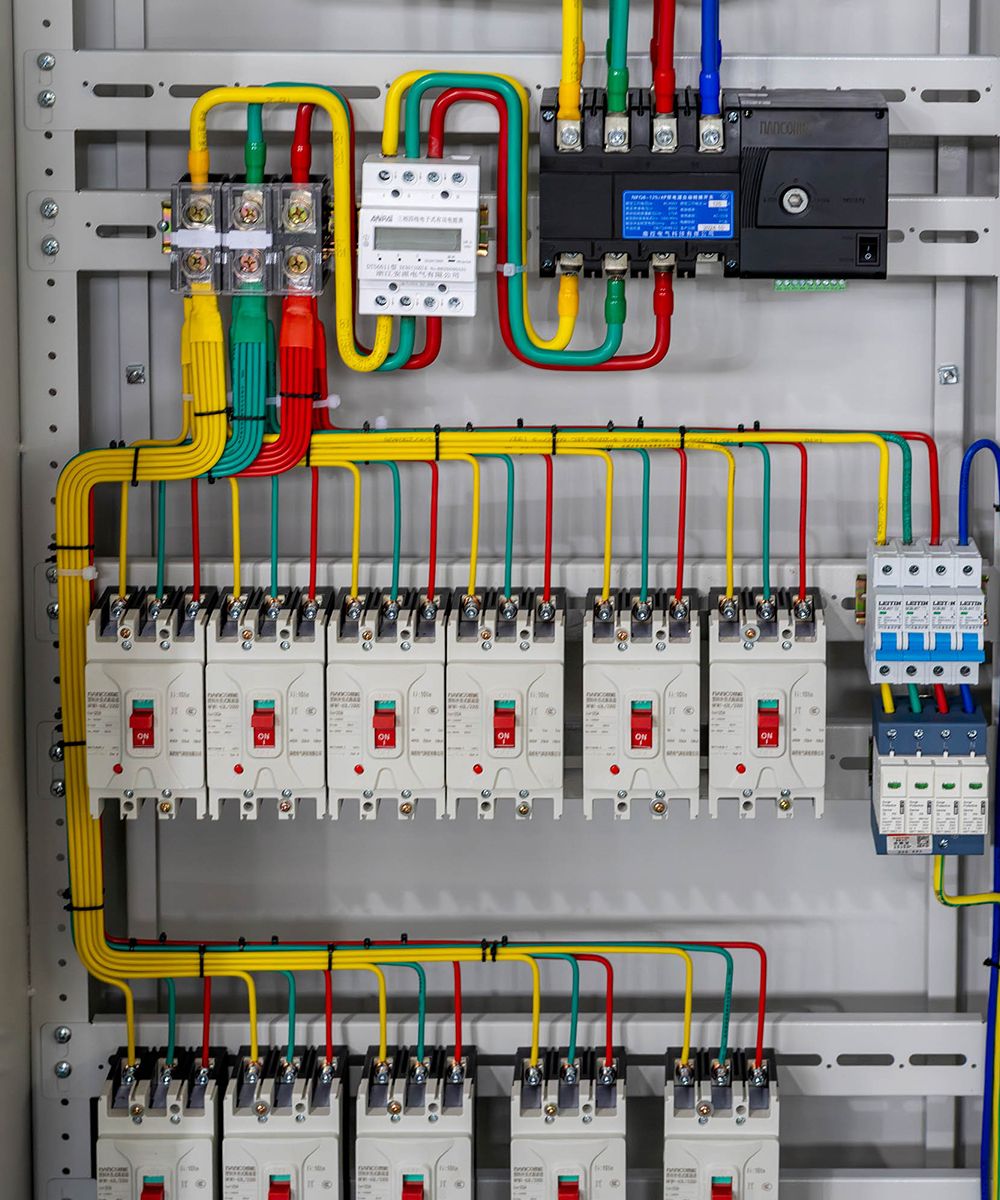
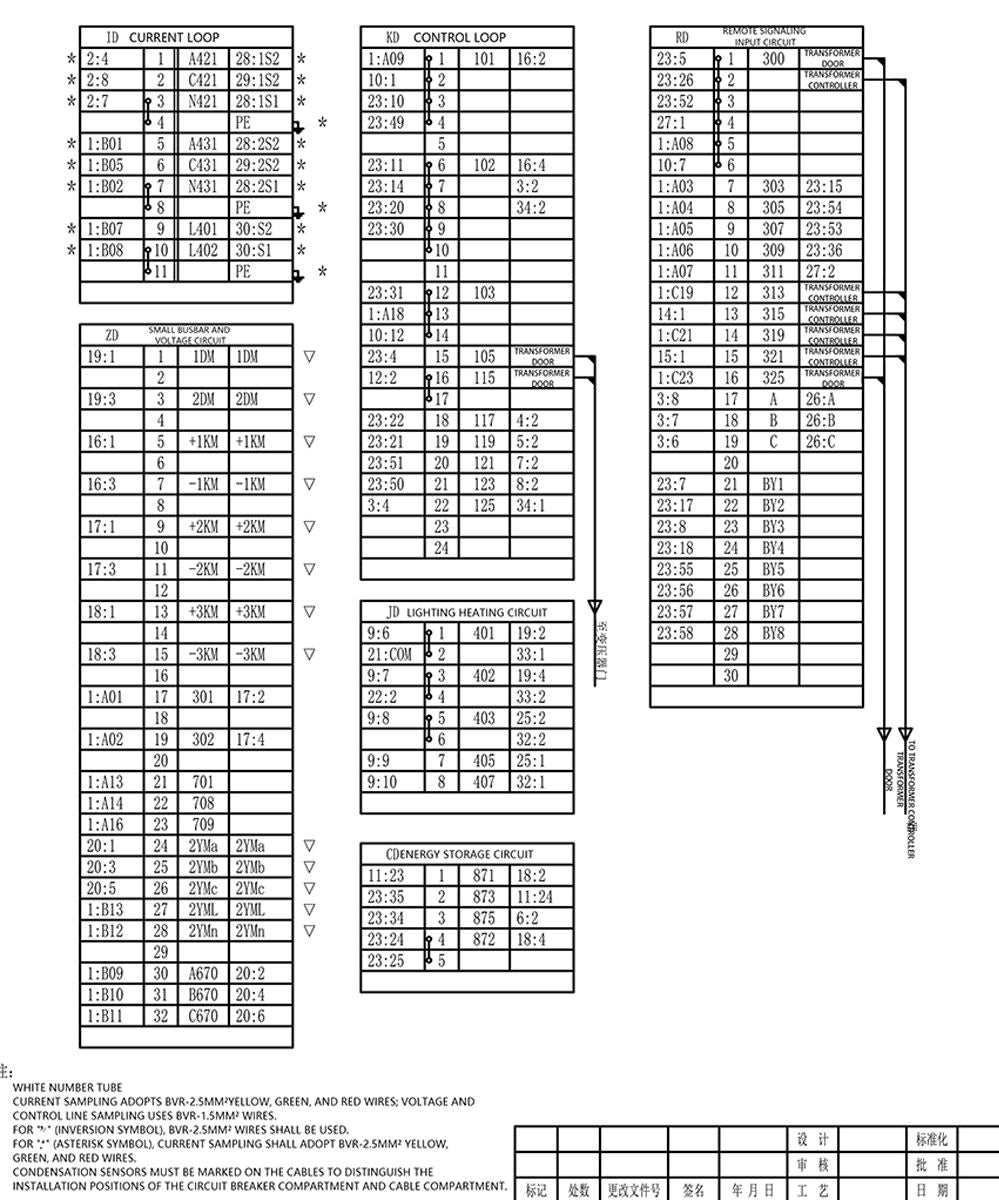
We believe that what’s inside defines true quality.Every Nancome distribution panel is engineered with precise cable routing,clear terminal labeling, and disciplined wiring logic. Neatness is not justabout looks—it ensures electrical reliability, efficient maintenance, andlong-term customer confidence.
Behind every cabinet is a bigger system. At Nancome,we go beyond standard products—we support the full lifecycle: from schematic interpretation and on-site adaptation to seamless system integration. We understand both the technical logic and the practical complexities of implementation, delivering end-to-end power distribution solutions you can rely on.
Traditional/Intelligent
Customize energy storage and charging solutions for you
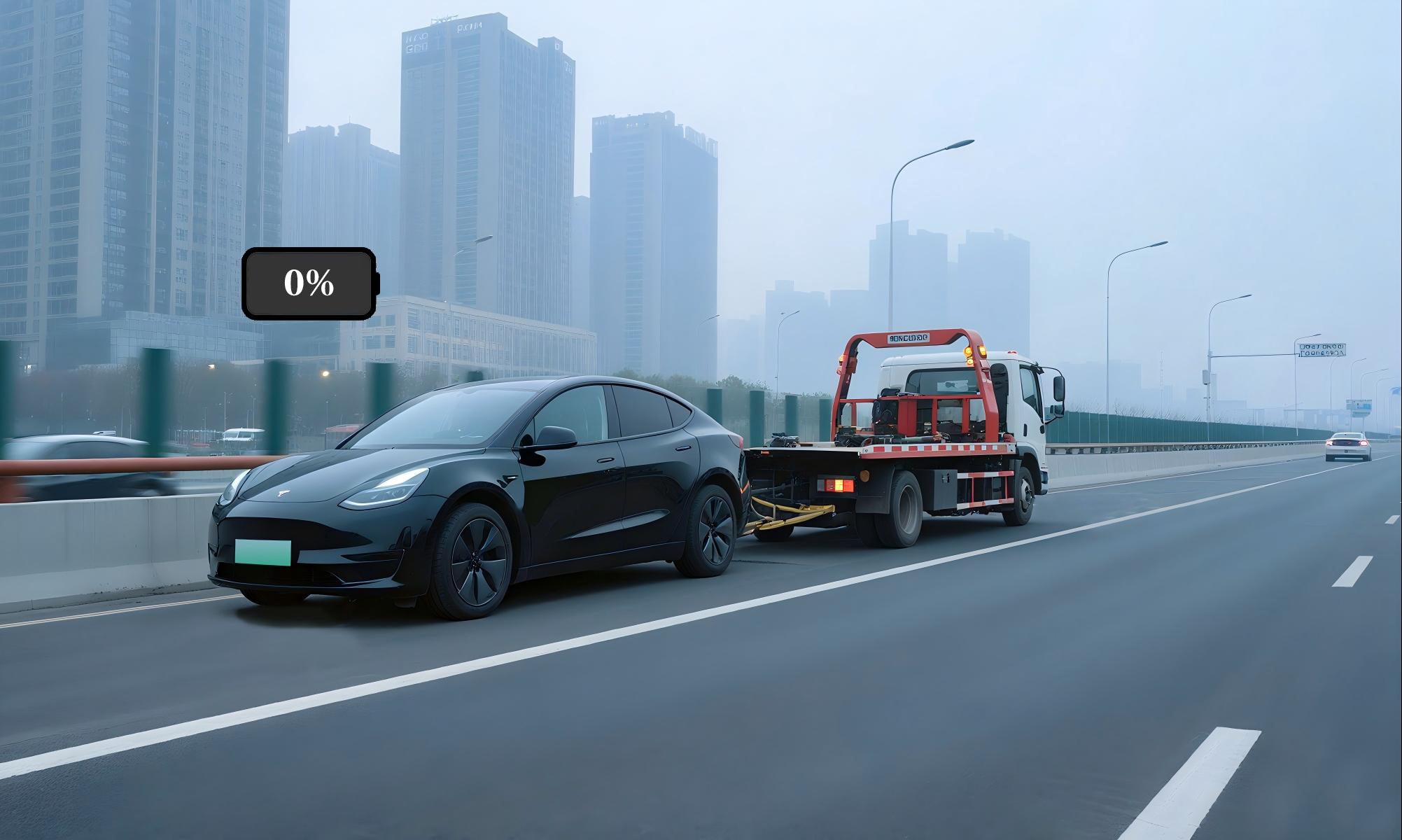
Before
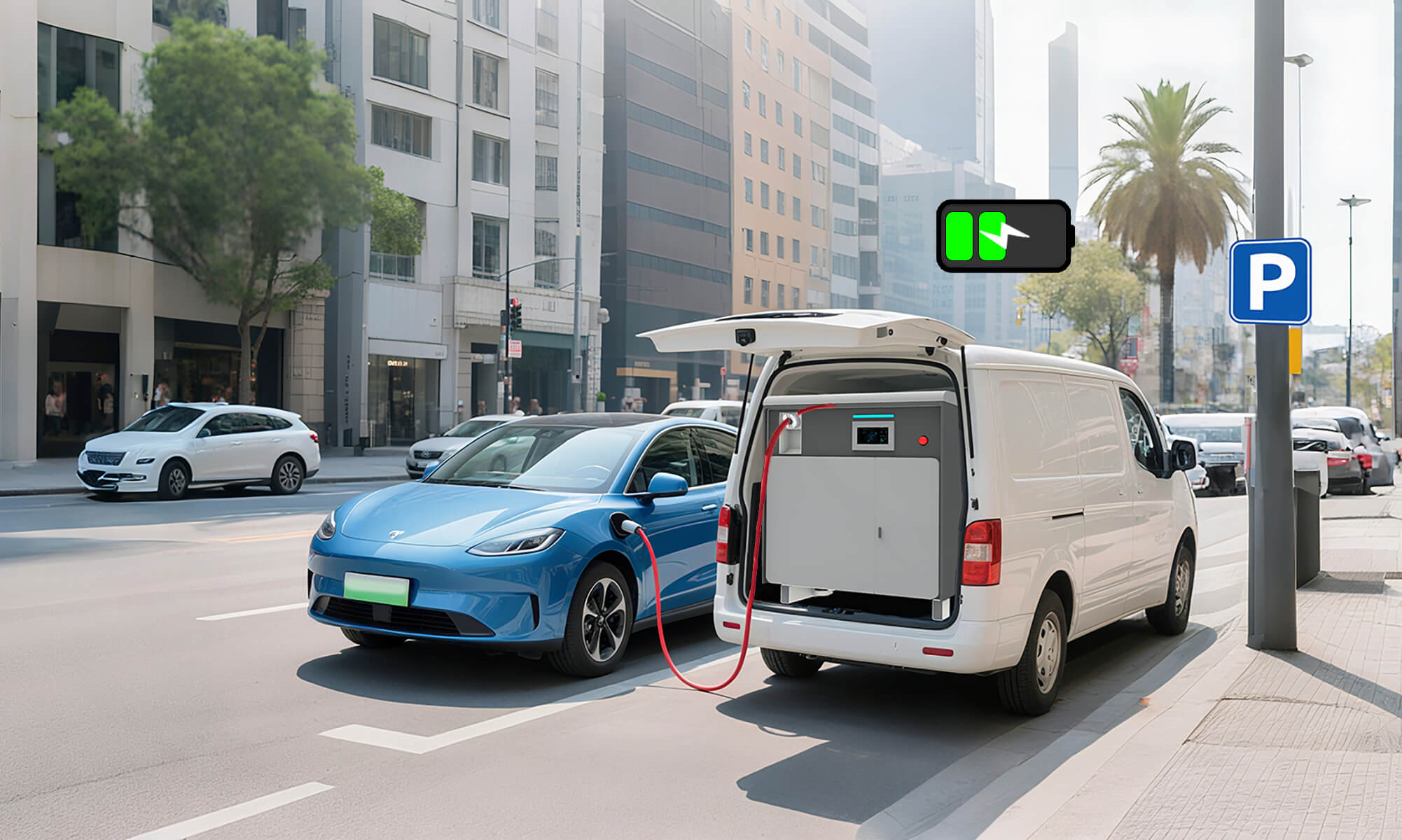
After
In off-gridareas, diesel power is common but faces issues like high fuel consumption,heavy emissions, and complex O&M, struggling to balance economy and environment.
Prioritize solar power generation during the day and achieve efficient, low-cost, and green charging through an intelligent management system, suitable for power limited scenarios.
Scheme Comparison
Choose from a variety of options to meet your needs!
Fixed external DC fast charging
Small emergency energy storage + fast charging output
Medium to large long-term power supply + fast charging output
No energy storage, need to be connected to the grid
Built-in 65kWh battery
Built-in 372kWh large-capacity battery
Municipal power grid
Energy storage power supply (can be equipped with photovoltaic/diesel power generation)
Energy storage power supply (can be equipped with photovoltaic/diesel power generation)
30–240kW
30–60kW
60–120kW
Electric vehicles, buses, logistics vehicles, etc
Electric vehicles, light commercial vehicles
Electric buses, heavy trucks, electric engineering vehicles, etc.
Depends on the power grid, unlimited times
A single charge can last about 390km
Can charge multiple vehicles, with a total charging mileage of 2200km
Urban fast charging stations, commercial parking lots
Mobile power supply, emergency rescue, small construction sites
Areas with difficult power access, large construction sites, and temporary power stations
Need to be fixedly installed and connected to the power cable
Can be mounted on a vehicle or trailer for flexible movement
Container/truck body deployment, semi-mobile
NO
YES
YES
Some models support
support
support
Low, medium to long term reliance on the power grid
The battery system needs regular maintenance
Medium, supports multiple energy input and output
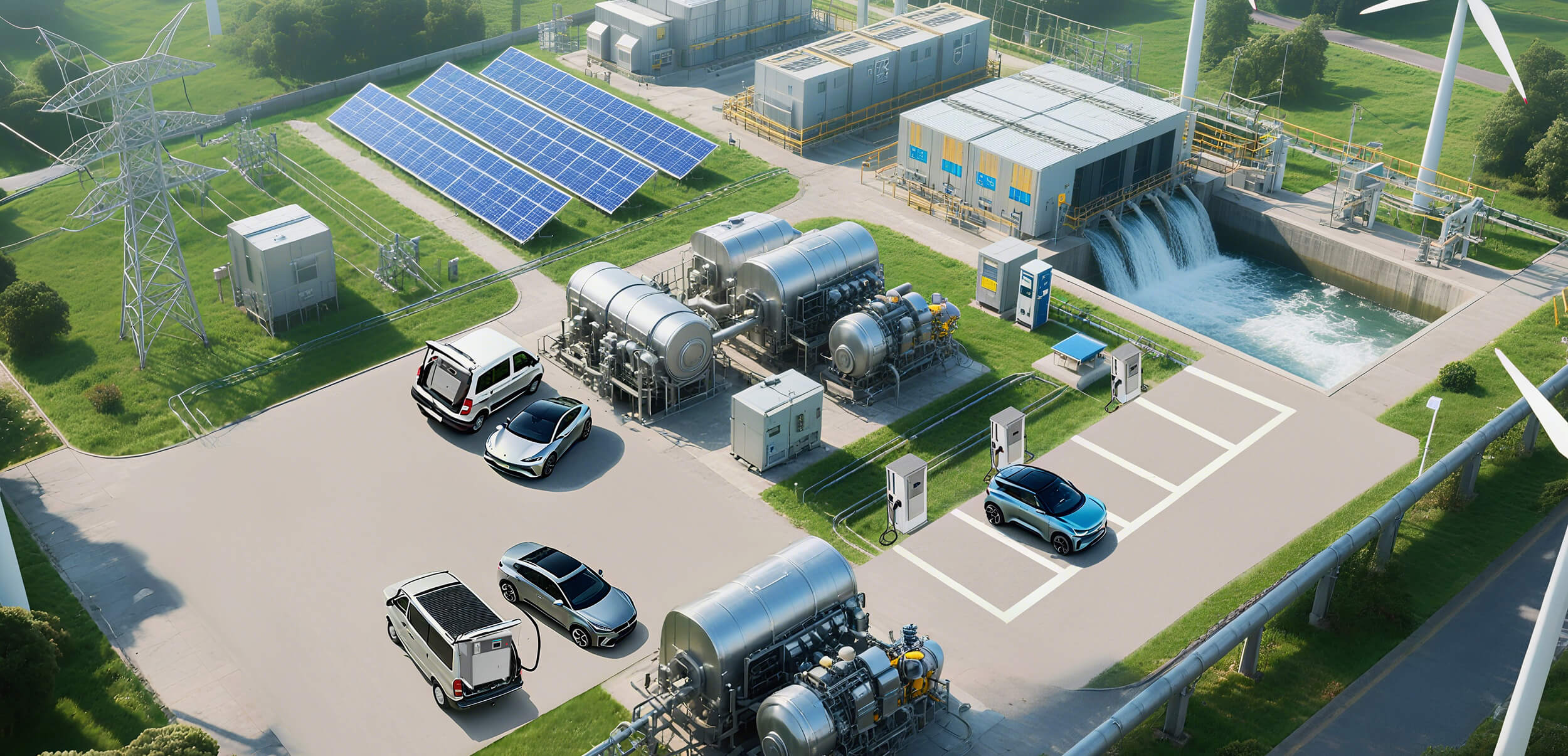
Diesel power
Diesel power generation uses a diesel engine to drive a generator and produce electricity, commonly used as a backup or off-grid power source.
Hydropower
Hydropower is a renewable energy source that generates electricity by using the kinetic energy of flowing or falling water to drive turbines.
Photovoltaic power
Photovoltaic power generation is a technology that converts sunlight directly into electricity using solar cells.
DC charging station
A DC charging station delivers direct current electricity to electric vehicles, enabling fast charging by bypassing the vehicle's onboard converter.
mobile energy storage charging station
A mobile energy storage charging station integrates batteries and fast chargers into a portable unit, enabling flexible and off-grid EV charging.
FAQ
Find quick answers to common questions.
The difference between AC and DC
AC power requires conversion inside the vehicle, making it suitable for slow charging scenarios, while DC power directly charges the battery, offering faster speeds ideal for time-sensitive applications like fast-charging stations.
Standard compatibility of charging interface
The compatibility of charging interface standards refers to whether the charging device supports the plug standards and communication protocols used by electric vehicles in different countries or regions. Due to different charging standards used worldwide, if the device is incompatible, it cannot charge the vehicle, or there may be safety/communication issues with charging.
Dowe need additional excavation, wiring, and transformer installation for ourequipment?
Whether trenching, wiring, or transformer upgrades are needed depends on the device power and site conditions. Low-power AC chargers usually connect directly to existing power, while high-power DC or storage systems may require electrical upgrades. We offer installation advice and
connection support.
Are you a factory or trading company?
Yes, we are a professional manufacturer specializing in low and high voltage power distribution cabinets,control cabinets, complete automation systems, EV chargers, and energy storage equipment. With over 30 years of production experience, our factory is located in Putian, Fujian Province, China.
What products and services can you provide?
We supply various control cabinets such as high and low voltage switchgear, energy storage and charging integrated cabinets, etc.We support OEM/ODM customization, electrical drawing drawing and installation and commissioning guidance, and provide global after-sales service and localized support in some regions, as well as remote technical guidance.

